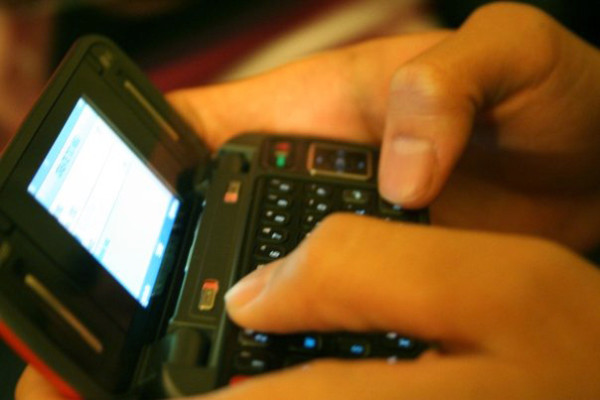I just read on Defense One, that the Islamic State has developed a new Android application to exchange secure messages amongst its members and sympathisers. This is in fact, the second smartphone app they’ve designed to distribute propaganda, recruit ‘agents’, and chat about whatever it is that terrorists like to chat about.
Back in December, a counterterrorism collective named Ghost Security Group observed ISIS members directing their followers to a now defunct website to download the Amaq News app (as the first app was called). The Amaq Agency is a news agency that has openly shown support for some Islamic State narratives/actions in the past.
“The application’s primary purpose is for propaganda distribution. Using the app, you are able to follow the most recent news and video clips.”, said representatives of Ghost Security, referring to the first application.
On January 11, Ghost Security discovered another app called Alrawi.apk, which had “encrypted communications features”. We would post a link to the app, but it’s obviously not on any App Store or Playstore accessible to muggles like us. Plus, it’s not like I want to spend my days chatting with ISIS operatives anyways.
Previous ISIS communication was done via Telegram, an instant messaging app, with end-to-end encryption and self-destruct timers. Simply put: a system where only the two parties communicating are able to read the conversation. No third parties – not even the ISP, or telecom provider or the company that runs the messaging service – can access the keys (word to DJ Khaled) needed to decrypt the conversation.
Telegram was created by one Pavel Durov, a Russian businessman who was criticised on the internet when it came to light that he was aware, his application was being used by ISIS members to communicate and spread propaganda.
At TechCrunch Disrupt last year, Durov said, “I think that privacy, ultimately, and the right for privacy is more important than our fear of bad things happening, like terrorism. If you look at ISIS — yes, there’s a war going on in the Middle East. It’s a series of tragic events. But ultimately, the ISIS will always find a way to communicate within themselves. And if any means of communication turns out to be not secure for them, they’ll just switch to another one. So I don’t think we are actually taking part in these activities. I don’t think we should be guilty or feel guilty about it. I still think we’re doing the right thing, protecting our users’ privacy.”
And I’m inclined to agree with him. If he takes out the privacy feature off his app, or blocks ISIS channels, they will find other platforms on which to maintain communication. I mean, there’s Whatsapp, Facebook, Twitter, and even free code with which to build your own app littered all over the internet. Durov eventually did block 78 ISIS public channels though, after the Paris attacks, back in November 2015.
Our policy is simple: privacy is paramount. Public channels, however, have nothing to do with privacy. ISIS public channels will be blocked.
— Pavel Durov (@durov) November 19, 2015
The fact that Telegram was used for ISIS propaganda did a lot to reignite the encryption debate and encrypted messaging applications have faced fresh scrutiny.
Photo Credit: Wikipedia cc





















